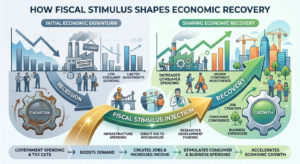Retirement, once a seemingly distant horizon, is a milestone that approaches faster than many anticipate. For individuals in the United Kingdom, the journey towards this ‘golden age’ is increasingly complex, shaped by evolving demographics, economic shifts, and a changing social landscape. Gone are the days when a comfortable final salary pension was a given for most. Today, individuals bear a greater responsibility for their financial future, navigating a maze of pension options, rising living costs, and an ever-present uncertainty about what the future holds. This article will delve into the crucial aspects of preparing for retirement in the UK, outline the significant challenges that lie ahead for future retirees, and offer actionable strategies to help individuals build a secure and fulfilling post-work life.
The Evolving Landscape of UK Retirement
The traditional pillars of UK retirement have undergone significant transformation:
1. Decline of Defined Benefit (DB) Pensions: For generations, many workers benefited from “final salary” or “defined benefit” pension schemes, predominantly offered by public sector employers and some large private companies. These schemes guaranteed a set income in retirement, often linked to salary and years of service. However, due to increasing longevity and funding pressures, most private sector DB schemes have closed to new members, replaced by less generous alternatives.
2. Rise of Defined Contribution (DC) Pensions: The vast majority of today’s workforce contributes to “defined contribution” pension schemes. Here, contributions from both employer and employee are invested, and the final pension pot depends entirely on the amount contributed and the investment performance. This places the investment risk squarely on the individual, requiring greater financial literacy and engagement.
3. State Pension: The State Pension provides a foundational level of income in retirement. However, its value is modest, and the State Pension age is continually rising, reflecting increased life expectancy and pressures on public finances. For many, relying solely on the State Pension is not a viable option for a comfortable retirement.
4. Longer Life Expectancy: While a cause for celebration, increased longevity means retirement savings need to stretch further. A 60-year-old today can realistically expect to live into their late 80s or even 90s, meaning a retirement period potentially spanning 25-30 years or more.
Essential Pillars of Retirement Preparation
Achieving a comfortable retirement in the UK requires proactive planning and consistent effort across several key areas:
1. Start Early, Save Consistently: The power of compound interest is the greatest ally in retirement planning. Starting to save in your 20s or 30s, even small amounts, allows investments to grow significantly over decades. Regular, consistent contributions, ideally increasing as income rises, are far more effective than sporadic large contributions later in life.
2. Understand Your Pension Options:
- Workplace Pensions: If employed, ensure you are enrolled in your workplace pension scheme, especially if your employer contributes. This is essentially free money! Understand whether it’s a ‘salary sacrifice’ scheme, which can offer additional tax benefits.
- Personal Pensions (SIPPs): For self-employed individuals or those wanting to top up their workplace pension, a Self-Invested Personal Pension (SIPP) offers greater control over investment choices. Seek financial advice if unsure about investment strategies.
- Tracing Old Pensions: Many people lose track of old workplace pensions from previous jobs. The government’s Pension Tracing Service can help locate these vital pots.
3. Maximize Tax Relief: Pension contributions in the UK benefit from generous tax relief, effectively adding a boost to your savings. For basic rate taxpayers, every £80 contributed sees HMRC add £20. Higher and additional rate taxpayers can claim even more through their self-assessment. Utilise these incentives to make your money work harder.
4. Define Your Retirement Goals and Lifestyle: What does your ideal retirement look like? Do you plan to travel extensively, pursue new hobbies, or simply enjoy a quiet life at home? Estimating your likely expenditure in retirement is crucial for setting a savings target. Tools like the Pension and Lifetime Savings Association (PLSA) Retirement Living Standards can provide a useful benchmark for minimum, moderate, and comfortable retirement lifestyles.
5. Consider Other Savings and Investments: While pensions are tax-efficient for retirement, don’t neglect other savings vehicles. ISAs (Individual Savings Accounts) offer tax-free growth and withdrawals, providing accessible funds for shorter-term goals or as a flexible top-up to your pension income. Property, although illiquid, can also form part of a broader retirement strategy.
6. Review and Adjust Regularly: Your retirement plan shouldn’t be a one-off exercise. Review your savings progress, investment performance, and financial goals annually. Life events – such as marriage, children, career changes, or inheritances – will necessitate adjustments to your plan.
7. Seek Professional Financial Advice: Navigating the complexities of pensions, investments, and retirement income strategies can be daunting. A regulated financial advisor can provide personalised guidance, help you assess your risk tolerance, choose appropriate investments, and plan for your specific circumstances. While there’s a cost involved, the long-term benefits can far outweigh it.
Future Challenges for UK Retirees
Even with robust preparation, future retirees in the UK will likely face several significant headwinds:
1. Cost of Living Inflation: While inflation impacts everyone, it disproportionately affects retirees who often rely on fixed incomes. Rising energy bills, food prices, and healthcare costs can erode the purchasing power of pensions, demanding a larger pension pot than previously estimated.
2. Healthcare and Social Care Costs: While the NHS provides free healthcare at the point of use, long-term social care (e.g., care homes, in-home care) is means-tested and can be incredibly expensive. This is a significant unknown for many and a potential drain on retirement savings, particularly as people live longer and may require more support.
3. Investment Volatility and Low Yields: Defined contribution pensions are exposed to market fluctuations. Periods of high volatility or prolonged low investment returns can impact the final size of a pension pot. Simultaneously, achieving significant income from safe investments (like bonds or savings accounts) can be challenging in a low-interest-rate environment.
4. Longevity Risk: The gift of a longer life also presents a financial challenge: outliving your savings. Planning for a longer retirement period is crucial, but predicting exact longevity is impossible.
5. State Pension Age Increases: The State Pension age is set to rise further in the coming decades, meaning future generations will likely work longer before being able to claim their basic state support. This can impact retirement planning and aspirations.
6. Intergenerational Fairness: As the population ages, the burden on the working generation to support state pensions and healthcare increases. This can lead to debates about intergenerational fairness and potential policy changes that could impact future retirees.
Conclusion: A Journey of Diligence and Adaptation
Retirement in the UK is no longer a passive transition but an active journey of planning, vigilance, and adaptation. While the challenges are real – from managing personal pension investments to grappling with future cost of living pressures and healthcare expenses – the opportunities for a fulfilling post-work life are equally significant. By embracing the principles of early saving, informed decision-making, professional guidance, and continuous review, individuals in the UK can significantly enhance their chances of achieving a financially secure and personally enriching retirement. The golden horizon may present its own set of hurdles, but with diligent preparation and a forward-looking mindset, it remains an achievable and deeply rewarding destination.







